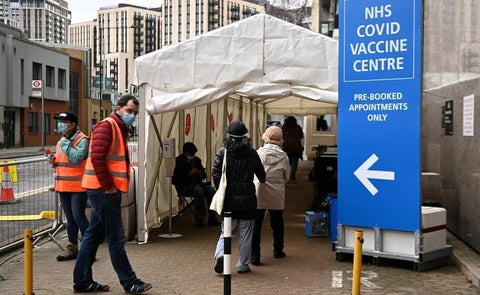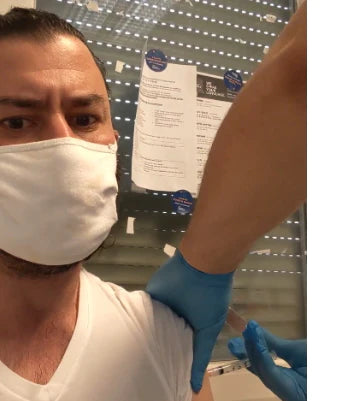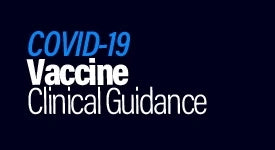COVID Vaccine and Autoimmune Conditions: Balancing Risks and Benefits
Introduction
Navigating COVID-19 vaccination decisions can be challenging, especially for individuals with autoimmune conditions. This blog explores the benefits and potential risks of the COVID vaccine for those with autoimmune disorders, offering insights into making informed choices.

Understanding Autoimmune Conditions and Vaccination
What Are Autoimmune Conditions?
- Immune System Overactivity: Autoimmune conditions occur when the immune system mistakenly attacks the body’s own cells.
- Common Conditions: Includes rheumatoid arthritis, lupus, multiple sclerosis, and Crohn’s disease.
- Symptoms and Impact: Inflammation, joint pain, fatigue, and tissue damage are common symptoms.
How Vaccines Work
- Immune Response: Vaccines train the immune system to recognize and combat pathogens, like the COVID-19 virus, without causing disease.
- mRNA Technology: The COVID-19 vaccines, like Pfizer and Moderna, use mRNA to instruct cells to produce a protein that triggers an immune response.
Concerns for Autoimmune Patients
- Potential Flare-Ups: Vaccines may trigger autoimmune flares or increase inflammation in some individuals.
- Safety Data: Research shows COVID-19 vaccines are generally safe for autoimmune patients, but individual risks may vary.

Me taking the second shot
Benefits of Vaccination for Autoimmune Conditions
Protection Against Severe COVID-19
- Reduced Hospitalization: Vaccines significantly lower the risk of severe illness, hospitalization, and death from COVID-19.
- Herd Immunity: Widespread vaccination helps protect those who are immunocompromised or cannot receive the vaccine.
Impact on Autoimmune Symptoms
- Preventing Complications: COVID-19 infection can worsen autoimmune symptoms or lead to severe complications.
- Post-Vaccine Monitoring: Healthcare providers recommend close monitoring of autoimmune patients after vaccination to manage any adverse effects.
Potential Risks and Side Effects
Autoimmune Flares
- Risk Factors: Some autoimmune patients may experience increased symptoms or flares post-vaccination.
- Managing Flares: Strategies include adjusting medications and using anti-inflammatory therapies, such as CBD oil, to manage flares.
Vaccine Side Effects
- Common Reactions: Pain at the injection site, fatigue, headaches, and fever are common side effects.
- Severe Reactions: Rare cases of severe allergic reactions or myocarditis have been reported, particularly in younger individuals.
Considering Alternatives and Supportive Therapies
Consulting Healthcare Providers
- Personalized Advice: It’s crucial for autoimmune patients to consult their healthcare providers before vaccination to weigh the benefits and risks.
- Adjusting Medications: Temporary changes to autoimmune medications may be advised before and after vaccination to minimize risks.
The Role of CBD in Immune Support
- Anti-Inflammatory Effects: CBD may help manage inflammation and autoimmune flares, supporting overall immune health.
- CBD and Vaccination: While CBD can support immune function, it’s important to discuss its use with a healthcare provider, particularly around vaccination time.
An expert's opinion
To get some scientific approval, I turned to a dear friend, Prof. Lior Zangi, from the Department of Genetics & Genomic Sciences at Mount Sinai New York with a Ph.D in immunology.
Who should get vaccinated
Lior’s view is that EVERYONE should get vaccinated, regardless of age or of having any underlying condition. He goes even further and answers a fundamental question that has been surfacing quite a lot lately:
Should healthy young people be vaccinated
His answer in brief: YES. The reward is greater than the risk and the risk is nonexistent.
Furthermore, he strengthens his point by saying that whoever chooses to not get vaccinated is basically offering a fertile ground for the virus to mutate and create new variants. And that's not good. To that extent, that's why even young healthy people must also get vaccinated!

ACR recommendations relating COVID-19 vaccine
So let’s get into the specifics of the recommendations of the ACR (American College of Rheumatology) relating COVID-19 vaccine clinical guidance for patients with rheumatic and musculoskeletal diseases (RMD).
Before that, please remember that these recommendations are still a ‘work in progress’ and will evolve as more data comes in. Therefore, patients should continue and monitor information about available mRNA vaccines and other types that are under development.
Additional Important data
COVID-19 risk factors:
- Autoimmune inflammatory rheumatic diseases (AIIRD) patients (e.g., RA, PsA, axSpA, gout, lupus, vasculitis) are at a higher risk for COVID-19 hospitalization and worse outcome compared to the general population.
- Based on their COVID-19 risk, AIIRD patients should be a priority group to be vaccinated vs. the general population of similar age and sex.
Considerations when considering COVID vaccine
- Based on available data, there is no preference for one COVID-19 vaccine over another.
- There is no direct evidence about mRNA COVID-19 vaccine safety and efficacy in RMD patients. However, there is no reason to expect that adverse effects from the vaccine will outweigh the benefits to RMD patients.
- There are no known additional contradictions to COVID-19 vaccines beyond known allergies to the its ingredients.
- Rheumatology patients taking systemic immunosuppressive medications may experience lesser response to a COVID-19 vaccine and the protection may not last as long as in the general population. Nevertheless, the vaccine is still very likely to provide meaningful protection, and RMD patients should be vaccinated.
- There is a theoretical risk that AIIRD patients may experience a disease flare after getting a COVID-19 vaccine, but the benefits of the vaccine’s protection outweigh the risks.
Medication Timing
It may be helpful to alter the timing of the following medications in consultation with a rheumatologist, when following a COVID-19 vaccine schedule*:- Methotrexate, Cyclophosphamide
- JAK inhibitors – Baricitinib (Olumiant), Tofacitinib (Xeljanz), upadocitinib (Rinvoq)
- Abatacept (Orenica), rithuximab (Rithuxan, Rexience, Truximo)
*Click here for the ACR complete document
The purpose of doing so would be to maximize vaccine response; there were no safety concerns raised related to medication or vaccine timing.
Following COVID-19 vaccination, RMD patients should continue to follow all public health guidelines, including mask-wearing, hand hygiene, physical distancing, and other preventative measures.
FAQs
Is the COVID vaccine safe for autoimmune patients?
Yes, but it's important to consult with a healthcare provider to assess individual risks and benefits.
Can the COVID vaccine trigger an autoimmune flare?
There is a potential risk for flares, but many patients do not experience worsening symptoms. Monitoring and adjusting treatment can help manage this.
Should autoimmune patients avoid the COVID vaccine?
Generally, the benefits outweigh the risks, but this decision should be made in consultation with a healthcare provider.
How can CBD help autoimmune patients?
CBD may reduce inflammation and help manage autoimmune symptoms, but its use should be discussed with a healthcare provider.
What are the common side effects of the COVID vaccine for autoimmune patients?
Common side effects include pain at the injection site, fatigue, and fever, with rare cases of severe reactions.Conclusion
Deciding whether to vaccinate against COVID-19 when living with an autoimmune condition requires careful consideration. Weighing the risks and benefits with the guidance of healthcare professionals is crucial. For those who choose vaccination, monitoring for symptoms and supporting the immune system with therapies like CBD may help manage any adverse effects. Making an informed decision will empower you to protect your health during these challenging times.
